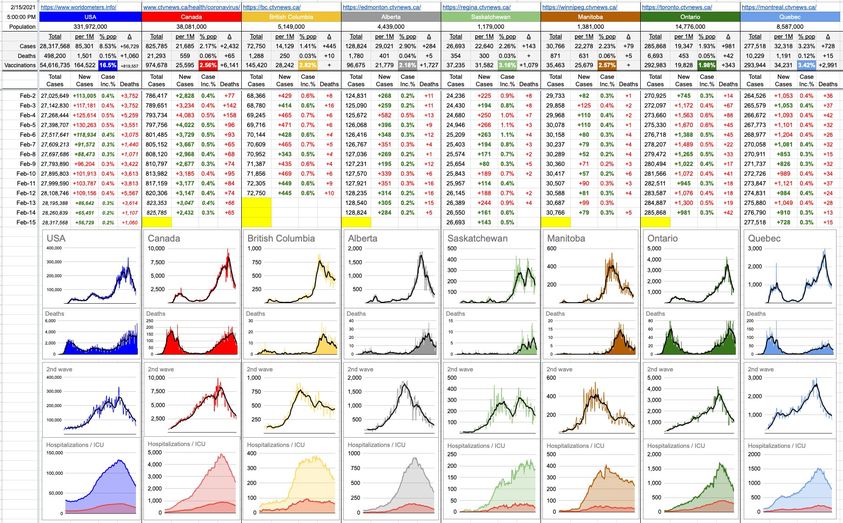Given the prevalence of anti-vaxx insanity and the fact that this virus continues to mutate, chances are it’ll be around for a long time. Perhaps forever. But that’s not the end of the world, because measles is also around, and nobody worries too much about it. The vast majority of people are vaccinated against it, and even if you get it, there’s a well-known treatment plan that’ll lessen the symptoms and help you get through it.
Similarly, for all the talk we have about C19 vaccines, let’s not forget that a lot has been learned about treatment, and a lot of drugs have been (and continue to be) developed specifically for that.
Initially, some already-existing drugs were found to have some positive effects. Dexamethasone, Remdesivir and Baricitnib among them, with varying degrees of success. Therapies involving convalescent plasma and monoclonal antibodies have been found to be very effective. “Potshots” with other existing drugs, such as Interferon and Tamiflu, have not been so successful. Antibiotics, drugs used to combat gout, other anti-virals… the list goes on and grows daily, as more data is collected and analyzed.
Two recent additions to the list are interesting.
First is news from Israel, who have been leading the charge with vaccinations — over 70% (!) of their population have received at least one dose — they’ve developed a drug for use in moderate or worse cases, and the early results couldn’t be more encouraging. Thirty people entered the hospital in relatively serious condition, and thirty people emerged cured… twenty-nine of them within three to five days. The drug, EXO-CD24, specifically fights the cytokine storm, the likeliest C19 complication that leads to death. Good numbers for a Phase-1 study. Onward.
Second is the locally-developed and hard-to-pronounce Bamlanivimab, which is beginning clinical trials locally… though it’s already been used on more than 125,000 patients in the U.S.
The one-two punch of vaccines and effective treatment is what will eventually return the world to normal… when everyone is convinced enough that they’re unlikely to get it, but even if they do, it’ll be no big deal. Given where our minds are these days, that seems like a big leap… but such was the case before antibiotics showed up. We take antibiotics for granted… oh, a little infection, no big deal… take these little pills a few times a day for a week and you’ll be fine. A hundred years ago, that little infection may well have killed you.
One day, catching some variant of C19 may be viewed with the same sort of novelty as catching Bubonic Plague… it’s rare, it’s out there, but… most importantly… it’s treatable and it’s curable. Interestingly, we’re probably at that point today, at least from a scientific point of view. Further tests will either confirm or disqualify that statement… but, either way, today’s issue isn’t the science as much as it is logistics and distribution.
21 Likes, 2 Shares



https://kemeny.ca/subscribe
I’m curious about whether or not you have any scepticism about the declining numbers in the US? I’m wondering what it’s about but it’s just a gut feeling
It may sound counterintuitive, but the biggest problem they’ve found getting treatments for Covid-19, is it’s not that deadly. The vast majority of people with CV19 get better, so it’s difficult to tell what actually works & what provides no benefit. If you had a virus that killed half of those infected, you’d be able to tell from an observational study, a drug was working if mortality dropped to 5%. Hospitals all over the world have been throwing drugs at patients & thinking that must be working, if our patients got better. The vast majority would’ve got better anyway. So recovery for most people, is what makes it challenging for the experts to find what really works.
The only way that can be done is through large randomised control trials. They take time & surprisingly even in the rich countries their healthcare systems are not coordinated enough to do good large RCTs. Remdesivir is a good example, in an early weak RCT, it seemed to show benefit. In a larger RCT (RECOVERY), they could detect no discernible benefit. It’s noticeable the only drug treatments confirmed to be beneficial are in severe disease. It’s obviously easy to tell if a patient lives or dies & calculate whether the drug is changing those outcomes.
There could be many drugs prevent or soften mild covid, but outside of an RCT difficult to tell. Maybe the drug helped you to have mild covid, or maybe like most people you’d have had mild covid without the drug.